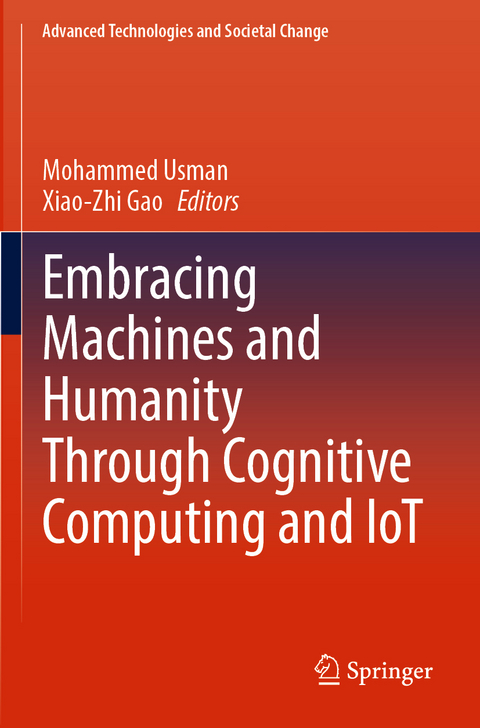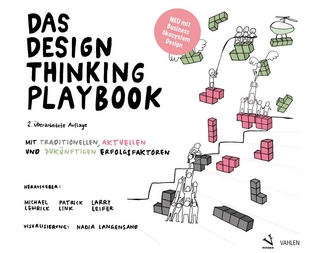
Embracing Machines and Humanity Through Cognitive Computing and IoT
Springer Verlag, Singapore
978-981-19-4524-3 (ISBN)
Mohammed Usman received his Ph.D. from University of Strathclyde, UK. He has more than a decade of experience in academics and academic administration. He is a senior member of IEEE and IEEE Communications Society. He has been the TPC chair and the organizing chair for IEEE conferences and actively involved in IEEE activities. He is currently working as an assistant professor in the department of Electrical Engineering at King Khalid University, Saudi Arabia. He received the academic excellence award from the College of Engineering at King Khalid University and also received the award for best project in 2016. A senior design project under his supervision received the talent and innovation award in 2018. His research is focused on technologies for next-generation wireless networks, signal processing for biomedical application, probabilistic modelling, and channel coding. Xiao-Zhi Gao received his B.Sc. and M.Sc. degrees from the Harbin Institute of Technology, China, in 1993 and 1996, respectively. He obtained his D.Sc. (Tech.) degree from the Helsinki University of Technology (now Aalto University), Finland, in 1999. He has been working as a professor at the University of Eastern Finland, Finland, since 2018. He is also a guest professor at the Harbin Institute of Technology, Beijing Normal University, and Shanghai Maritime University, China. Prof. Gao has published more than 400 technical papers in refereed journals and international conferences. His research interests are nature-inspired computing methods with their applications in optimization, data mining, machine learning, control, signal processing, and industrial electronics.
Publishing Temperature and Humidity Sensor Data to ThingSpeak.- Design of Hybrid Logic Full Subtractor Using 10T XOR-XNOR Cell.- Stuck at Fault Detection in Ripple Carry Adders with FPGA.- Prediction of Covid-19 Spreaders.- SMART AGRICULTURAL SOLUTIONS THROUGH MACHINE LEARNING.- LOW-COST ECG BASED HEART MONITORING SYSTEM WITH UBIDOTS PLATFORM.- AUTOMATIC ATTENDANCE MANAGEMENT SYSTEM USING AI & DEEP CONVOLUTIONAL NEURAL NETWORK.- Automatic Vehicle Alert and Accident Detection System based on CloudUsing IoT.- AEFA-ANN: artificial electric field algorithm-based artificial neural networks for forecasting crude oil prices.- A CRITICAL SURVEY ON MACHINE LEARNING PARADIGMS TO FORECAST SOFTWARE DEFECTS BY USING TESTING PARAMETERS.- Low Power Comparator-Triggered Method of Multiplication for Deep Neural Networks.- Assembly line implementation for IOT applications.- Dementia disease detection from psychiatric disorders based on automatic speech analysis.
| Erscheinungsdatum | 06.03.2024 |
|---|---|
| Reihe/Serie | Advanced Technologies and Societal Change |
| Zusatzinfo | 53 Illustrations, color; 18 Illustrations, black and white; X, 130 p. 71 illus., 53 illus. in color. |
| Verlagsort | Singapore |
| Sprache | englisch |
| Maße | 155 x 235 mm |
| Themenwelt | Informatik ► Software Entwicklung ► User Interfaces (HCI) |
| Informatik ► Theorie / Studium ► Künstliche Intelligenz / Robotik | |
| Mathematik / Informatik ► Mathematik ► Angewandte Mathematik | |
| Technik | |
| Schlagworte | Artificial Intelligence (AI) • Cognitive Abilities • Cognitive analytic data • cognitive fusion • Cognitive IoT • Human aware devices • Human Computer Interaction (HCI) • Human Tempered Machine Action • Industry 4.0 • Pattern Visualization • Watson assistant |
| ISBN-10 | 981-19-4524-1 / 9811945241 |
| ISBN-13 | 978-981-19-4524-3 / 9789811945243 |
| Zustand | Neuware |
| Informationen gemäß Produktsicherheitsverordnung (GPSR) | |
| Haben Sie eine Frage zum Produkt? |
aus dem Bereich


